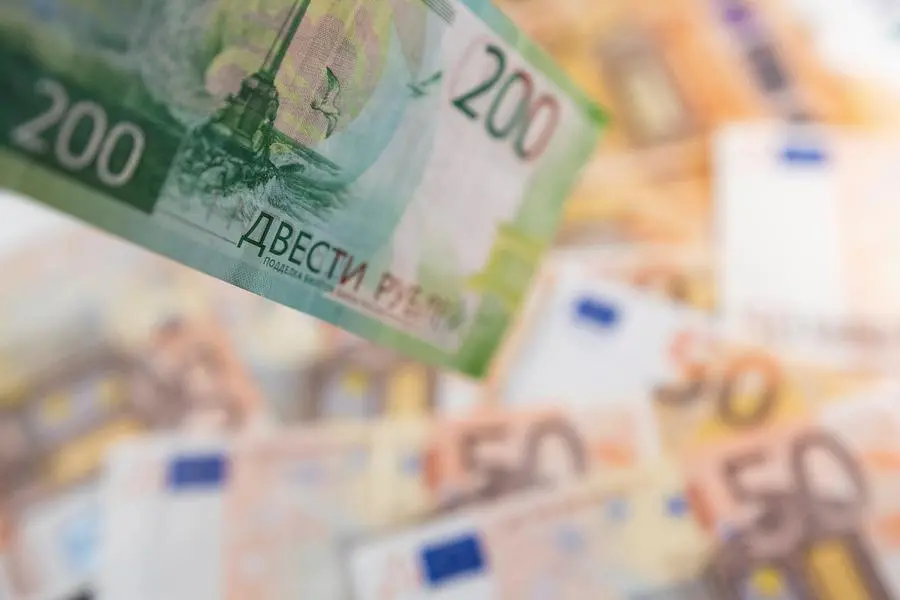PHOTO
* This content was produced in Russia where the law restricts coverage of Russian military operations in Ukraine
The Russian rouble fell sharply to its lowest in two weeks against the dollar and euro on Tuesday before clawing back most intraday losses in volatile trade, as the market remained alert to any efforts by Moscow to limit the currency's appreciation.
At 0745 GMT, the rouble was 0.3% weaker against the dollar at 58.28, earlier plunging to 59.23, its weakest mark since July 13. It had gained 0.1% to trade at 59.14 versus the euro, after slumping past 60 for the first time since July 11 in early Moscow trade.
"The Russian currency continues to fluctuate in a narrow range without a distinct direction of travel," said Veles Capital in a note.
Jittery trade has characterised the rouble's last few sessions. On Friday, Russia's central bank cut its key interest rate by a bigger-than-expected 1.5 percentage points to 8.0% and said it would study the need for more cuts as inflation slowed and an economic contraction continued for longer than previously expected.
The rouble brushed off the peak of a favourable tax period on Monday to extend losses but remains relatively close to the near seven-year highs it hit in late June. The currency's strength has concerned officials, because it dents Russia's income from exports of commodities and other goods priced in dollars and euros.
The rouble is still the world's strongest-performing currency https://emea1.apps.cp.thomsonreuters.com/Apps/NewsServices/mediaProxy?apiKey=6d416f26-7b24-4f31-beb6-1b5aa0f3fafb&url=http%3A%2F%2Ffingfx.thomsonreuters.com%2Fgfx%2Frngs%2FGLOBAL-CURRENCIES-PERFORMANCE%2F0100301V041%2Findex.html so far this year, boosted by measures to shield Russia's financial system from Western sanctions imposed after Moscow sent troops into Ukraine on Feb. 24. These include restrictions on Russian households withdrawing foreign currency savings.
Before Feb. 24, the rouble traded near 80 per dollar and 85 per euro.
Alfa Capital analyst Alexander Dzhioev said Russia's trade surplus and restrictions on the movement of capital were continuing to support the rouble.
"The supply of foreign currency on the domestic market from exporting companies is still hefty, while demand for this foreign currency is limited due to weak activity from importing companies," Dzhioev said.
Russian stock indexes rose. The dollar-denominated RTS index was up 0.5% to 1,160.9 points. The rouble-based MOEX Russian index was 0.9% higher at 2,147.5 points. (Reporting by Reuters)
Reuters





















